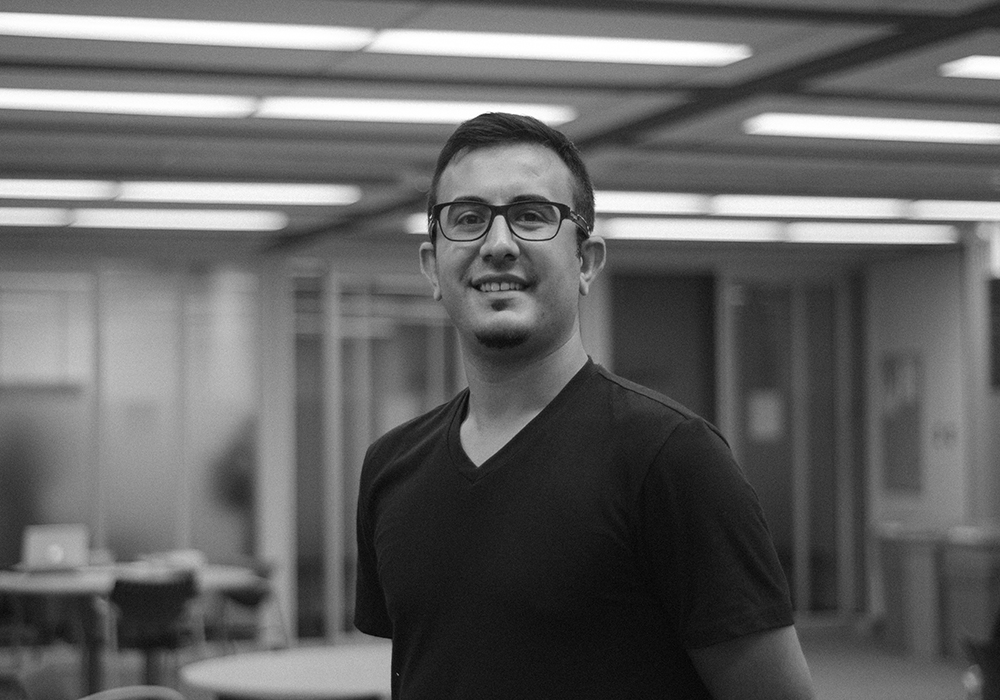International media was swept up in the Syrian crisis last week when a photograph of a dead three-year-old boy on a Turkish beach surfaced, prompting immediate debate on the refugee crisis, and whether nations have done enough to help people fleeing from ISIS and the butcher of Damascus.
The Turkish government has charged four Syrians for the deaths of at least 12 people, including three-year-old Alan Kurdi, whose boat capsized near the Greek island of Kos.
The five wealthiest Gulf nations have refused to take a single Syrian refugee, in which Amnesty International described their neglect as “shameful.”
Of the four million Syrians who’ve fled, most live in Middle Eastern refugee camps and more than 30,000 have attempted to reach European shores in 2015 alone.
Behzad Mohammadi, Kurdish refugee and Master’s student at York, contacted Excalibur to reach out to students who may not know the struggles many of his people face.
“The heartbreaking death of Alan,” says Mohammadi, “alongside his five-year-old brother, Gulip, three other children, and seven adults not only shook the world, but also symbolized the sad reality of the current global refugee crisis. It demonstrated the international community’s defective response to it.”
BBC’s Middle Eastern Correspondent Quentin Sommerville, he adds, reported that he noticed three dead bodies when he walked for only 50 yards along the shore of Zuwara, Libya. Yet, Alan’s story is not just a symbol of a global refugee crisis, but also a Canadian crisis.
While Germany has taken the lead in providing some solution to the global refugee crisis with the promise of granting over 800,000 migrants this year, Mohammadi explains, millions of Canadians woke up last week feeling shocked, heartbroken, and profoundly disappointed with the revelation that their country is not doing enough to ease the tragic plight of refugees.
“More shockingly to some, it was revealed that the Ministry of Citizenship and Immigration had done nothing to help the two Kurdi families find refuge in Canada.”
A pleading letter written by Tima Kurdi, Alan’s aunt, on behalf of the family was ignored, and thereby left Alan and his parents with no choice but to put their lives at the hands of smugglers. The smugglers took them, along with eight others, in a shaky small boat through a very dangerous route to the Greek island of Kos, where they ultimately faced death.
“Tima’s effort in bringing her family to Canada was rejected because of a bureaucratic technicality,” Mohammadi says. “Tima was told that in order for her application to be considered, her brothers needed to provide complete and appropriate documents, such as valid Syrian passports, which they had to go back to Syria to obtain before legally re-entering Turkey.”
Tima noted the impossibility of this task in her letter.
On the one hand, returning to war-torn Syria is unimaginable, Mohammadi says. After a four-year civil war, which forced more than four million Syrians to flee the country, going back into ISIS-held territory is life threatening and precisely the reason the Kurdi family left in the first place.
“On the other hand, anyone familiar with the history and politics of the region can testify to the horrific ethnic cleansing of Kurds in Syria and the neighbouring governments.”
He cites, until very recently, the Kurds in Syria were not even given legal recognition as an ethnic minority and were not given identification documents. “Put simply, it was impossible to overcome this bureaucratic hurdle to obtain entry to Canada.”
Nonetheless, Mohammadi says, the Kurdi family’s case does not just reveal the cruelty of red tape and the bureaucratic trap of the Ministry of Citizenship and Immigration, but also points to the fundamental flaws in the transformative changes to Canada’s refugee and immigration laws.
“For those following Canada’s immigration and refugee policy, Alan’s picture, however tragic and heartbreaking, was not an isolated incident. Under the guise of bringing ‘integrity’ and ‘efficiency’ to the immigration system, the Conservative government has made it more and more difficult for refugees to apply and be accepted into Canada.”
Ryan Moore, News Editor
Featured image courtesy of Michael Zusev, Photo Editor




